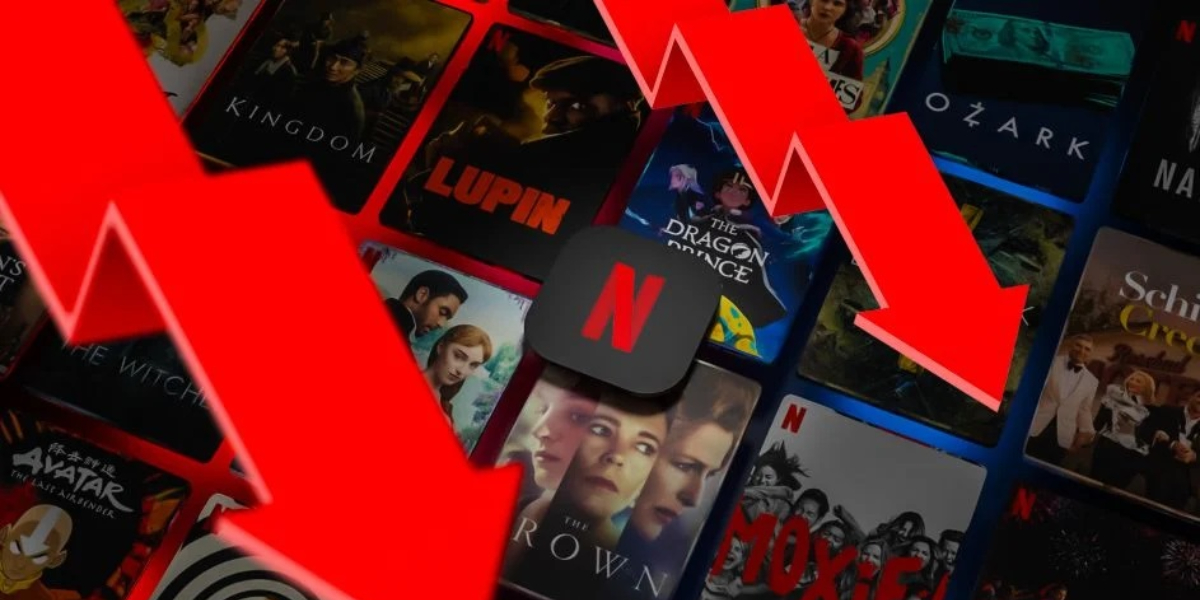As the stock of Netflix falls to its lowest level in five years, the company risks losing its most valuable asset: its star employees.
Working at Netflix has long been regarded as one of the most coveted jobs in Hollywood, if not all of corporate America.
The company is one of the most well-known brands, pays well, and provides the opportunity to work with the people who revolutionised the way we watch television.
However, a historic drop in Netflix’s stock price, triggered by the company’s bad financial results, has shattered employees’ faith in the company’s long-term prospects.
Many employees’ options have also lost their value as a result of this. People who had tens or hundreds of thousands of dollars in their bank accounts are now left with nothing.
According to current and former employees, there are more people looking to quit Netflix right now than at any time in recent memory.
According to The Information, Netflix employees have also requested that new stock awards be issued to compensate them for the losses suffered this week.
Netflix has long touted its corporate culture as the key to its success. Reed Hastings, one of the company’s co-founders, created a now-famous PowerPoint deck defining the company’s culture of freedom and responsibility, as well as a book, “No Rules Rules,” to explain it to budding entrepreneurs. Working at Netflix isn’t for everyone, but it’s ideal for certain types of ambitious, goal-oriented executives.
Hastings and his Co-Chief Executive Officer Ted Sarandos have struggled with how to maintain the company’s ethos as it grows. Netflix’s workforce rose from over 2,000 at the end of 2013 to over 11,000 at the end of last year.
The majority of the new hires come from Hollywood and other parts of the world, where business cultures are very different from those in Silicon Valley. Netflix’s proclivity for free discussion didn’t always translate to the screen.
Now that the corporation is in cost-cutting mode, this problem will only become more difficult. Bosses will be under even more pressure to produce, and they will be less likely to allow their employees to make mistakes.
Netflix has stated that it will not be hiring as many workers and that it will be scrutinising its spending. This is a business where you were supposed to be allowed to spend as much as you wanted.
Netflix is already reorganising its engineering teams into tiers, such as junior, senior, and so on. Many employees see this as a cost-cutting measure.
Netflix has always been a somewhat flat company. Although there are leaders at the top, many team members are on the same level.
The corporation did not present the move in this light. It claimed to be for the promotion of people’s careers.
Both are possible. Netflix didn’t hire low-level staff when it initially started out. It just hired celebrities and paid them double or triple what they would have received elsewhere.
Netflix has grown to the point that it may require a junior tier, which would allow the company to hire some lower-wage employees.
Netflix continues to offer workers the opportunity to make a lot of money working for the world’s largest television network. It isn’t collapsing at all. It’s basically the same size as Disney+ and HBO Max put together.
Netflix, on the other hand, seemed unstoppable, a high-flying disruptor that grew and grew and grew. Netflix is starting to feel like just another corporation now that it is focusing on cost management (and copying its competitors).
The corporation is well aware that its culture is in jeopardy. Leaders initiated a process to rebuild the iconic culture memo even before the company’s recent subscriber problems.
Hastings must remain active in order to respond to the company’s greatest internal and external challenge in a decade. When he selected Sarandos as co-CEO and Greg Peters as COO, he appeared to be paving the way for succession.
Although Hastings stated that he would not be leaving, many of his top staff assumed that he would relinquish day-to-day authority in the coming years.
For the latest Business News Follow BOL News on Google News. Read more on Latest Business News on oldsite.bolnews.com





















